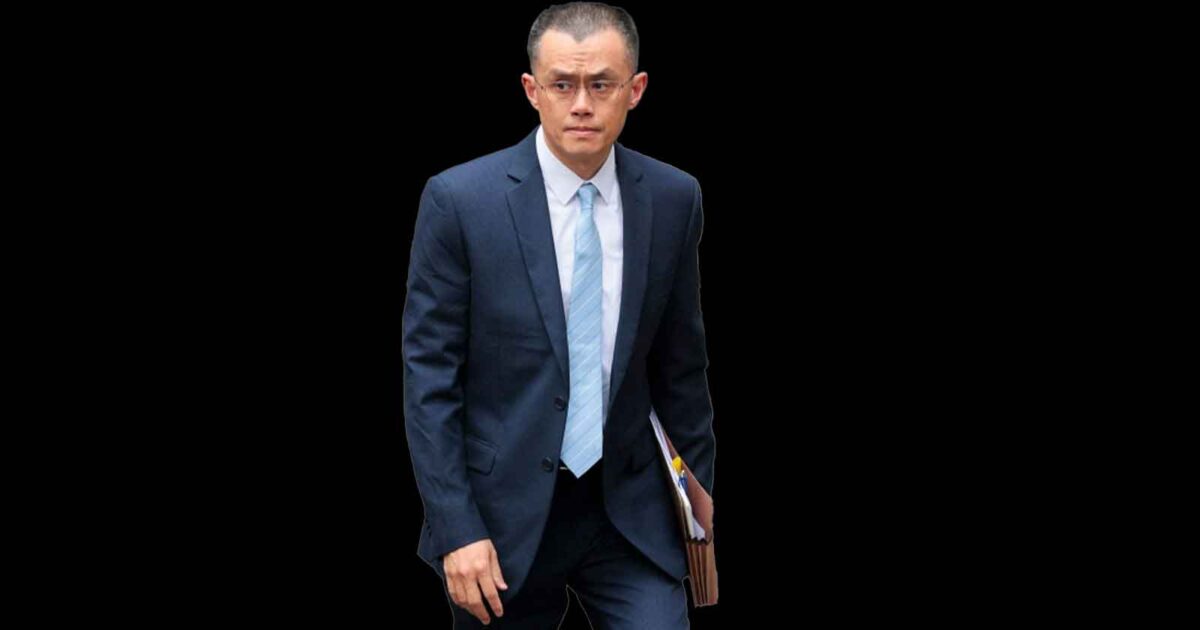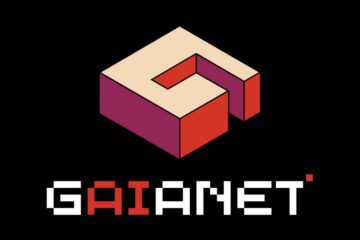
Changpeng Zhao, the billionaire founder of the major cryptocurrency exchange Binance, was sentenced to four months in prison on Tuesday, a much lighter penalty compared to other cryptocurrency executives following the industry’s downturn in 2022.
Mr. Changpeng Zhao admitted guilt last year to a money-laundering violation, acknowledging that his company allowed terrorist groups and other criminals access to its platform. Defense lawyers sought probation without prison time, while prosecutors requested a three-year sentence, deeming it an unprecedented crime.
However, Judge Richard A. Jones, overseeing the case in U.S. District Court in Seattle, stated on Tuesday that Mr. Changpeng Zhao had taken responsibility for his actions and was unlikely to reoffend.
Judge Jones remarked, “Your behavior does not justify a 36-month sentence.” He described Mr. Changpeng Zhao as “a dedicated family man and a generous individual” and commended his remarkable achievement in establishing Binance.
Mr. Changpeng Zhao, 47, dressed in a dark suit and light blue tie, showed little visible reaction to the sentence announcement. He nodded vigorously during Judge Jones’s statement and touched his hand to his heart.
In a brief statement to the court, Mr. Zhao admitted, “I failed in this instance. I profoundly regret my actions, and I apologize.”
It’s unclear when Mr. Changpeng Zhao will begin his prison term. His legal team requested an expedited process and suggested serving the sentence at SeaTac, a federal prison in the Seattle area.
This sentencing marks the second high-profile penalty this year in the Justice Department’s effort to combat criminal behavior in the cryptocurrency industry. In March, Sam Bankman-Fried, founder of the collapsed FTX exchange and Mr. Changpeng Zhao’s former business rival, received a 25-year prison sentence for fraud.
Mr. Changpeng Zhao’s four-month sentence starkly contrasts with Mr. Bankman-Fried’s penalty and the expected consequences for other cryptocurrency executives facing accusations. Do Kwon, another prominent cryptocurrency founder, was charged with fraud last year and detained in Montenegro while awaiting extradition to either the United States or South Korea, his home country.
Alex Mashinsky, CEO of the failed cryptocurrency bank Celsius, is contesting charges that could lead to decades in prison.
Dennis Kelleher, president of Better Markets, a nonprofit advocating for stringent financial regulation, criticized Mr. Changpeng Zhao’s four-month sentence as “an egregious miscarriage of justice” and suggested it sends the wrong message to criminals globally.
Spokespeople for Mr. Changpeng Zhao’s legal team and the Justice Department opted not to provide comments. In a letter to Congress, Carlos Uriarte, an assistant attorney general, recommended imposing harsher penalties for violations of the Bank Secrecy Act, the law Mr. Zhao admitted to breaking.
Not long ago, Mr. Changpeng Zhao stood at the helm of the multitrillion-dollar cryptocurrency industry, amassing a significant fortune and a devoted online following. Binance was the dominant cryptocurrency company globally, processing up to two-thirds of all transactions. However, it faced investigations by several U.S. agencies into whether Mr. Zhao had violated the law to build his empire.
Facing significant legal scrutiny, Mr. Changpeng Zhao, also known as CZ, frequently minimized concerns about Binance by labeling them as “FUD” (fear, uncertainty, and doubt) – a phrase used in the cryptocurrency community to describe false rumors intended to damage a company.
In November 2022, Mr. Changpeng Zhao’s industry influence grew after he contributed to the downfall of Mr. Bankman-Fried through a series of social media posts. This led to a run on FTX’s accounts. When FTX couldn’t repay its customers, Mr. Zhao briefly considered acquiring the exchange before withdrawing from the deal. Subsequently, Mr. Bankman-Fried was arrested on fraud charges, leaving Mr. Zhao as the predominant figure in the industry.
However, behind the scenes, Mr. Zhao and Binance were in negotiations with federal prosecutors, seeking to resolve their legal issues. Mr. Zhao resided in the United Arab Emirates, which lacks an extradition treaty with the United States.
Prosecutors sought an agreement to compel him to face criminal charges. With a potential indictment looming, Mr. Zhao hired a team of white-collar defense lawyers from the renowned law firm Latham & Watkins.
In November, Binance agreed to pay $4.3 billion to various U.S. agencies, including the Justice Department, to settle charges related to facilitating terrorist organizations such as Hamas, the Islamic State, and Al Qaeda through its platform.
Ultimately, a deal was reached. Prosecutors stated that under Mr. Zhao’s leadership, Binance had disregarded American sanctions, allowing customers from countries like Iran, Syria, and Cuba. The company also failed to report suspicious transactions involving narcotics and child sexual abuse materials, according to the government.
Prosecutors highlighted Mr. Zhao’s statement to Binance employees that it was “better to ask for forgiveness than permission” and his claim that complying with U.S. law would hinder the company’s growth.
Unlike other cryptocurrency executives, Mr. Zhao stood out by pleading guilty to a single criminal charge. He admitted to failing to establish an adequate anti-money laundering system at Binance, resigned as CEO, and agreed to a $50 million fine. However, he retained his ownership stake in Binance, preserving his $33 billion fortune, according to Forbes, making him the wealthiest executive in the cryptocurrency industry.
Prosecutors argued that Mr. Zhao’s offense warranted a 12 to 18-month prison sentence under federal guidelines but requested a three-year term, emphasizing that he had violated the law on an unprecedented scale.
Defense lawyers countered, emphasizing Mr. Zhao’s remorse and acceptance of responsibility. They argued against any prison time, highlighting that he had not been charged with fraud or embezzlement, unlike Mr. Bankman-Fried. They portrayed Mr. Zhao as a committed philanthropist intending to donate the majority of his wealth.
During the hearing, Mr. Zhao’s family, including his sister, mother, and son, a freshman at Pepperdine University, sat behind him in the gallery. William Burck, a lawyer for Mr. Zhao, argued that the prosecution’s recommended three-year sentence was excessively harsh compared to penalties for similar offenses.
Ultimately, Judge Jones deemed the recommendation excessive. As he explained his decision, Mr. Zhao’s son silently expressed approval with a fist pump.
Since pleading guilty, Mr. Zhao has remained in the United States, after his request to return home to Dubai before sentencing was denied by Judge Jones. He has spent recent months traveling across the country and has already begun planning his next ventures.
He has networked with other entrepreneurs and unveiled an online education platform called Giggle Academy, incorporating artificial intelligence. Additionally, he has engaged with biotechnology startups, expressing interest in investment opportunities.
Through his ownership of Binance, Mr. Zhao remains positioned to benefit from the cryptocurrency industry’s growth resurgence in recent months.
“During the court proceedings, Mr. Mosley emphasized that he remains positioned to continue making significant profits from the company’s operations.”



